-
 Bitcoin
Bitcoin $76,444.7530
-3.77% -
 Ethereum
Ethereum $1,473.8355
-5.46% -
 Tether USDt
Tether USDt $0.9991
-0.08% -
 XRP
XRP $1.7965
-5.51% -
 BNB
BNB $553.4919
-0.36% -
 USDC
USDC $0.9999
-0.02% -
 Solana
Solana $105.2981
-1.74% -
 TRON
TRON $0.2303
0.81% -
 Dogecoin
Dogecoin $0.1422
-4.62% -
 Cardano
Cardano $0.5587
-4.41% -
 UNUS SED LEO
UNUS SED LEO $8.9866
1.01% -
 Toncoin
Toncoin $2.9933
-4.74% -
 Chainlink
Chainlink $10.9113
-4.81% -
 Stellar
Stellar $0.2215
-4.76% -
 Avalanche
Avalanche $16.1163
-3.29% -
 Sui
Sui $1.9371
-3.89% -
 Shiba Inu
Shiba Inu $0.0...01065
-6.69% -
 Hedera
Hedera $0.1469
-3.29% -
 MANTRA
MANTRA $6.2058
-1.53% -
 Dai
Dai $1.0000
0.01% -
 Bitcoin Cash
Bitcoin Cash $269.3457
-2.08% -
 Polkadot
Polkadot $3.3773
-5.87% -
 Litecoin
Litecoin $69.2204
-2.50% -
 Ethena USDe
Ethena USDe $0.9986
-0.01% -
 Bitget Token
Bitget Token $4.0180
-3.25% -
 Pi
Pi $0.5649
-4.50% -
 Hyperliquid
Hyperliquid $11.1928
-2.80% -
 Monero
Monero $195.3885
-4.41% -
 OKB
OKB $50.9235
-0.59% -
 Uniswap
Uniswap $4.7688
-6.95%
What are the precautions for choosing a mining pool for FIL mining?
Choosing a Filecoin mining pool requires careful consideration of hashrate distribution, fees, reputation, server location, payout thresholds, software compatibility, and robust security measures to maximize profitability and minimize risks.
Mar 20, 2025 at 01:49 am
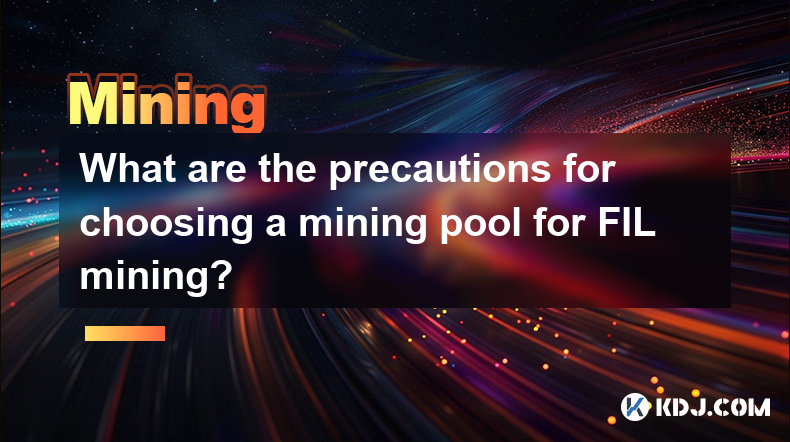
Key Points:
- Hashrate Distribution: Understanding the pool's hashrate distribution is crucial for consistent rewards. Highly centralized pools might offer higher chances of finding blocks, but also carry greater risk.
- Fees and Payment Methods: Mining pools charge fees for their services. Compare fees across different pools, paying attention to both percentage-based and fixed fees. Ensure the payment method aligns with your preferences.
- Pool's Reputation and Transparency: Research the pool's history, uptime, and community reputation. Transparency regarding block finding and payout processes is essential.
- Server Location and Network Connectivity: Choose a pool with servers geographically close to you to minimize latency and improve your chances of contributing to block discovery.
- Minimum Payout Threshold: Consider the minimum payout threshold. A lower threshold means more frequent payouts, but potentially higher transaction fees.
- Software and Support: Check for compatibility with your mining hardware and software. Good customer support is crucial if you encounter problems.
- Security: Prioritize pools with robust security measures to protect your mining rewards and prevent potential hacks.
What are the precautions for choosing a mining pool for FIL mining?
Filecoin (FIL) mining, unlike Bitcoin mining, requires significant storage space and consistent uptime. Choosing the right mining pool is paramount to maximizing profitability and minimizing risks. Let's delve into the key precautions you should take when selecting a FIL mining pool.
1. Understanding Hashrate Distribution:
A crucial factor is the pool's hashrate distribution. A highly centralized pool, with a dominant share of the network's hashrate, might seem attractive due to higher block-finding probability. However, this centralization also carries risks. If the pool experiences issues, your mining efforts are significantly impacted. A more decentralized pool, while potentially yielding slightly lower individual rewards, offers better risk diversification.
2. Fees and Payment Methods:
All mining pools charge fees. These can be percentage-based (e.g., 1% of your earnings) or fixed fees per block found. Carefully compare fees across different pools. Consider also the payment methods offered. Some pools offer payouts in various cryptocurrencies, while others stick to FIL. Choose a payment method that suits your needs and minimizes transaction costs.
3. Assessing the Pool's Reputation and Transparency:
Before committing, thoroughly research the pool's reputation within the Filecoin community. Look for reviews, feedback, and discussions on relevant forums. Transparency is key. A reputable pool will openly share data on its block-finding frequency, payout history, and overall pool statistics. Opacity should raise red flags.
4. Server Location and Network Connectivity:
The location of the pool's servers directly impacts your mining performance. Latency, the delay in data transmission, can significantly affect your ability to contribute to block creation. Ideally, choose a pool with servers geographically close to you to minimize latency. Consistent and reliable network connectivity is also paramount for uninterrupted mining.
5. Minimum Payout Thresholds:
Mining pools have minimum payout thresholds – the minimum amount of FIL you must earn before receiving a payment. A lower threshold means more frequent payouts, but potentially higher transaction fees per payout. Higher thresholds reduce transaction fees but mean longer waiting periods for rewards. Balance your preferences based on your mining setup and FIL accumulation goals.
6. Software and Support:
Ensure the pool's software is compatible with your mining hardware and software. Compatibility issues can lead to significant downtime and lost earnings. Reliable customer support is also crucial. A responsive and helpful support team can quickly resolve any technical problems that may arise, minimizing potential losses.
7. Security Considerations:
Security is paramount in the cryptocurrency world. Choose a pool with a proven track record of security and robust measures to protect your mining rewards. Look for pools that utilize advanced encryption and security protocols to safeguard against potential hacks or data breaches. Avoid pools with a history of security compromises.
Frequently Asked Questions:
Q: What is the best FIL mining pool?
A: There is no single "best" FIL mining pool. The optimal choice depends on individual factors such as your hashrate, geographical location, and risk tolerance. Research multiple pools and compare their features before making a decision.
Q: How often do FIL mining pools pay out rewards?
A: Payout frequency varies between pools. Some offer daily payouts, while others pay out weekly or even monthly, depending on their minimum payout threshold.
Q: What are the risks associated with FIL mining pools?
A: Risks include pool downtime, security breaches, fluctuating profitability due to network changes, and potential scams. Thorough research and careful selection are crucial to mitigate these risks.
Q: Can I switch FIL mining pools easily?
A: Yes, you can generally switch pools relatively easily. However, there might be a short downtime during the transition. Ensure you understand the pool's instructions for switching before initiating the process.
Q: How do I verify the legitimacy of a FIL mining pool?
A: Look for transparent operations, positive community reviews, and publicly available data on their performance and payouts. Check for independent audits or security certifications if available. Avoid pools with unclear fee structures or questionable promises of high returns.
Disclaimer:info@kdj.com
The information provided is not trading advice. kdj.com does not assume any responsibility for any investments made based on the information provided in this article. Cryptocurrencies are highly volatile and it is highly recommended that you invest with caution after thorough research!
If you believe that the content used on this website infringes your copyright, please contact us immediately (info@kdj.com) and we will delete it promptly.
- "Cardano (ADA) Price Could Dip Below $0.60, Following Previous Market Cycle"
- 2025-04-09 05:10:12
- BONK, the well-known meme coin, has risen over 35% in the last week, attracting meme coin investors in the market. So, what caused this rally?
- 2025-04-09 05:10:12
- Bitcoin (BTC) Investors May Not Exactly Feel It, but BTC Has Been a Relatively Good Bet
- 2025-04-09 05:05:12
- Donald's Bitcoin (DONBTC) Could Turn Early Investors into Multi-Millionaires, Like Shiba Inu (SHIB) and Dogecoin (DOGE) Did
- 2025-04-09 05:05:12
- 6 Upcoming Kraken Listings That Could Be the Next Big Thing in Crypto
- 2025-04-09 05:00:13
- COTI Unveils New Privacy-Focused Blockchain to Reshape Web3 Transactions
- 2025-04-09 05:00:13
Related knowledge
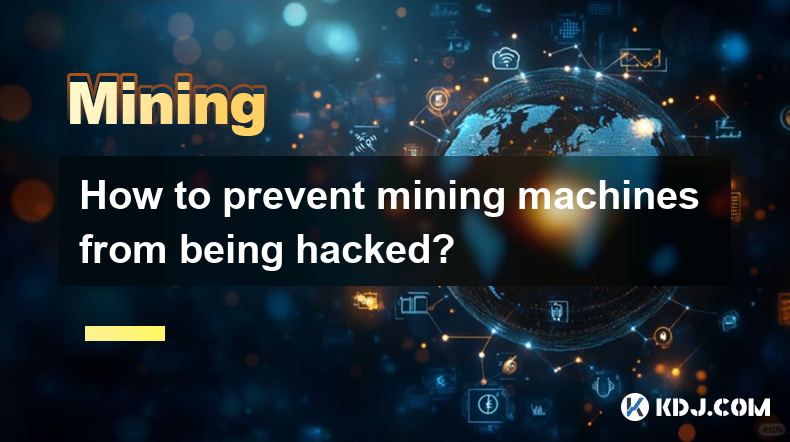
How to prevent mining machines from being hacked?
Apr 08,2025 at 09:00pm
In the world of cryptocurrency, mining machines play a crucial role in securing networks and validating transactions. However, these machines are also prime targets for hackers looking to exploit vulnerabilities for financial gain. Preventing mining machines from being hacked requires a multi-faceted approach that includes robust security measures, regu...
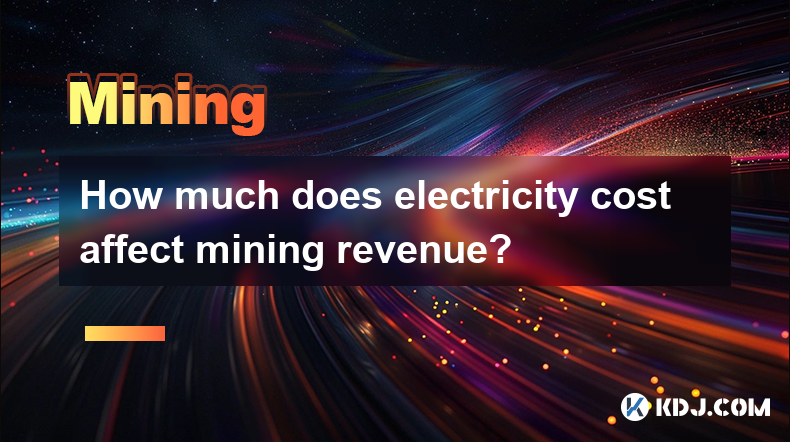
How much does electricity cost affect mining revenue?
Apr 08,2025 at 05:29pm
The cost of electricity plays a crucial role in determining the profitability of cryptocurrency mining. Mining revenue is directly impacted by the expenses incurred in running mining equipment, with electricity costs often being the most significant operational expense. Understanding how electricity costs affect mining revenue is essential for miners lo...
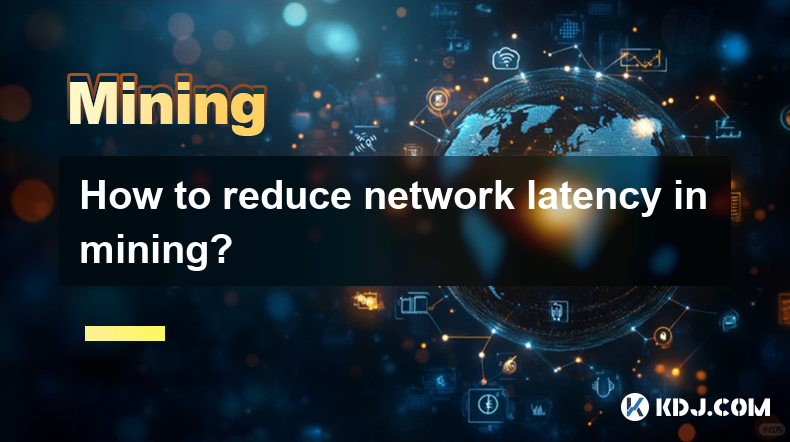
How to reduce network latency in mining?
Apr 09,2025 at 02:28am
Understanding Network Latency in MiningNetwork latency is a critical factor in the world of cryptocurrency mining. It refers to the time it takes for data to travel from its source to its destination across a network. In mining, lower latency can mean the difference between successfully adding a block to the blockchain and missing out on the reward. Red...

What is hashrate fluctuation?
Apr 08,2025 at 08:08pm
Hashrate fluctuation refers to the changes in the total computational power used by miners to process transactions and secure the blockchain network. This metric is crucial in the cryptocurrency world, particularly for networks like Bitcoin, Ethereum, and others that rely on proof-of-work (PoW) consensus mechanisms. Understanding hashrate fluctuation is...
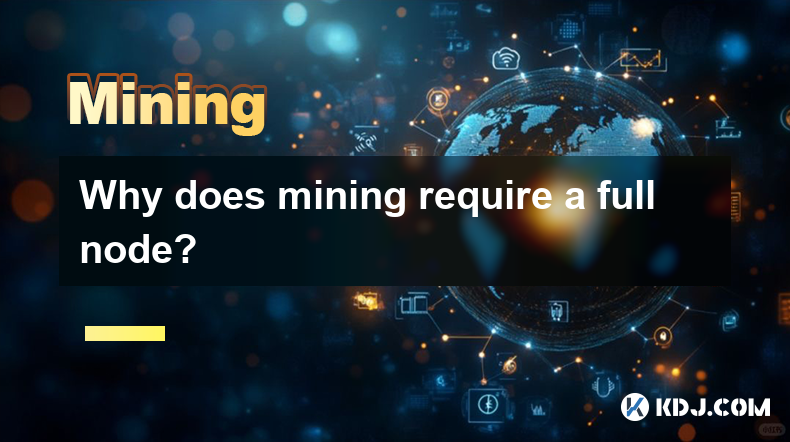
Why does mining require a full node?
Apr 08,2025 at 06:49pm
Mining in the cryptocurrency world is a complex process that involves verifying transactions and adding them to the blockchain. One of the key components required for mining is a full node. But why is a full node necessary for mining? Let's delve into the reasons and explore the intricacies of this requirement. What is a Full Node?A full node is a progr...
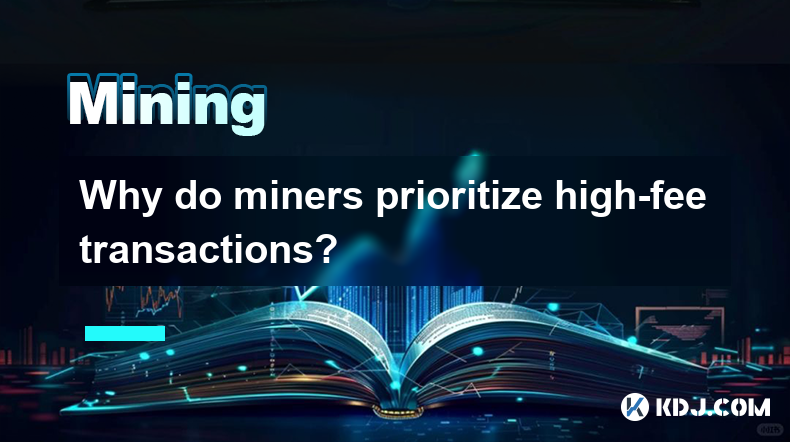
Why do miners prioritize high-fee transactions?
Apr 08,2025 at 05:01pm
Miners in the cryptocurrency ecosystem, particularly in networks like Bitcoin, play a crucial role in validating and adding transactions to the blockchain. One of the key factors that influence their decision-making process is the transaction fee associated with each transaction. Miners prioritize high-fee transactions primarily because these fees direc...

How to prevent mining machines from being hacked?
Apr 08,2025 at 09:00pm
In the world of cryptocurrency, mining machines play a crucial role in securing networks and validating transactions. However, these machines are also prime targets for hackers looking to exploit vulnerabilities for financial gain. Preventing mining machines from being hacked requires a multi-faceted approach that includes robust security measures, regu...

How much does electricity cost affect mining revenue?
Apr 08,2025 at 05:29pm
The cost of electricity plays a crucial role in determining the profitability of cryptocurrency mining. Mining revenue is directly impacted by the expenses incurred in running mining equipment, with electricity costs often being the most significant operational expense. Understanding how electricity costs affect mining revenue is essential for miners lo...

How to reduce network latency in mining?
Apr 09,2025 at 02:28am
Understanding Network Latency in MiningNetwork latency is a critical factor in the world of cryptocurrency mining. It refers to the time it takes for data to travel from its source to its destination across a network. In mining, lower latency can mean the difference between successfully adding a block to the blockchain and missing out on the reward. Red...

What is hashrate fluctuation?
Apr 08,2025 at 08:08pm
Hashrate fluctuation refers to the changes in the total computational power used by miners to process transactions and secure the blockchain network. This metric is crucial in the cryptocurrency world, particularly for networks like Bitcoin, Ethereum, and others that rely on proof-of-work (PoW) consensus mechanisms. Understanding hashrate fluctuation is...

Why does mining require a full node?
Apr 08,2025 at 06:49pm
Mining in the cryptocurrency world is a complex process that involves verifying transactions and adding them to the blockchain. One of the key components required for mining is a full node. But why is a full node necessary for mining? Let's delve into the reasons and explore the intricacies of this requirement. What is a Full Node?A full node is a progr...

Why do miners prioritize high-fee transactions?
Apr 08,2025 at 05:01pm
Miners in the cryptocurrency ecosystem, particularly in networks like Bitcoin, play a crucial role in validating and adding transactions to the blockchain. One of the key factors that influence their decision-making process is the transaction fee associated with each transaction. Miners prioritize high-fee transactions primarily because these fees direc...
See all articles






















































































